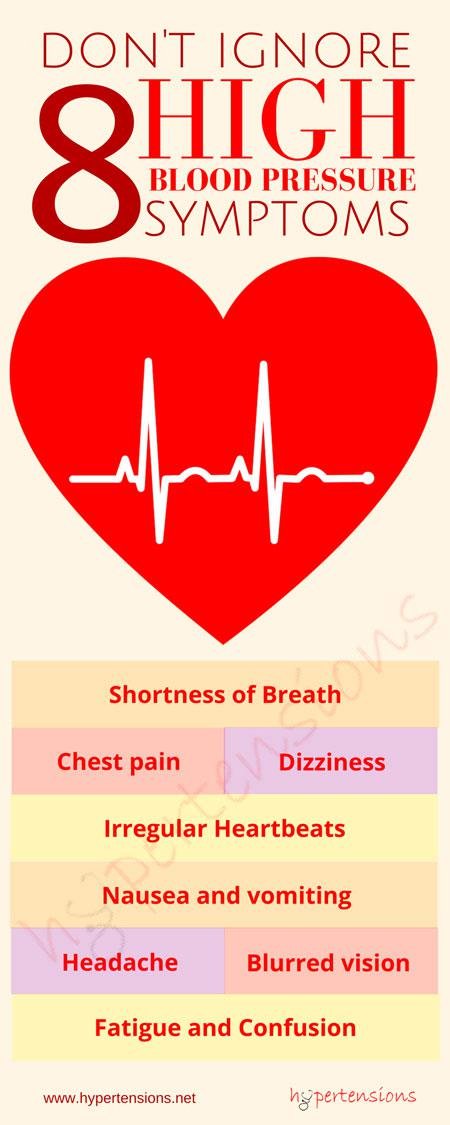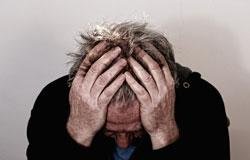High blood pressure, often nicknamed the "silent killer," can wreak havoc on your body for years without causing any noticeable symptoms. But don't be fooled by its stealthy nature! There are warning signs your body might be sending, and ignoring them could have serious consequences. Let's explore the key high blood pressure symptoms you should never ignore, empowering you to take charge of your health and seek medical attention when necessary.
When the Silent Killer Speaks Up: Warning Signs of High Blood Pressure
While high blood pressure often remains silent in its early stages, it can eventually cause noticeable symptoms as it reaches higher levels. These symptoms shouldn't be ignored and serve as a crucial prompt to see your doctor.
Early detection of elevated blood pressure is crucial. If you experience any of these high blood pressure warning signs, it's important to see your doctor right away.
- Sudden Severe Headaches:Sudden, intense headaches can be a warning sign.
- Chest Pain:Chest pain is a serious high BP symptom, especially alongside other indicators.
- Dizziness or Lightheadedness:Feeling dizzy, particularly when standing up or changing positions quickly, can be a red flag.
- Shortness of Breath:Unexplained shortness of breath, even at rest, warrants a check-up.
- Nausea or Vomiting
- Blurred Vision:Blurry vision can sometimes indicate high blood pressure.
- Tinnitus (Ear Ringing):While less common, ringing in the ears can be a sign of hypertension.
- Frequent Nosebleeds:Frequent nosebleeds, combined with other symptoms, should be checked by a doctor.
Remember, early detection is key! Don't wait for these symptoms to appear before getting your blood pressure checked.

Taking Control of Your Blood Pressure
If your doctor finds your blood pressure is high, they might recommend a few lifestyle changes to bring it down. This could include things like:
- Eating a healthy diet
- Exercising regularly
- Maintaining a healthy weight
- Managing stress
- Quitting smoking (if you smoke)
Sometimes, medication might also be necessary. But remember, your doctor will consider your family history, lifestyle, and current health to create the best treatment plan for you.
The Importance of Regular Checkups
Many people miss the chance to catch high blood pressure early because they don't get regular checkups. Early detection is crucial because in the prehypertension stage, natural remedies and lifestyle changes can often bring your blood pressure down.
The Dangers of Untreated High Blood Pressure
Here's the thing: even without symptoms, high blood pressure can silently damage your body over time. Here are some of the serious conditions it can contribute to:
- Stroke:Uncontrolled pressure can weaken blood vessels in the brain, increasing the risk of blockages or ruptures that lead to stroke(1).
- Heart Attack and Heart Failure:The constant strain from high blood pressure hardens arteries, making it harder for your heart to pump blood effectively. This can eventually lead to a heart attack or heart failure (2).
- Kidney Damage:Chronic blood pressure can damage the kidneys, which are responsible for filtering waste products from your blood (3).
- Vision Problems:Untreated elevated blood pressure can damage blood vessels in the eye, a condition called retinopathy. This can lead to blurred vision or even complete loss of vision (4) .
- Aneurysm:A weakened artery can bulge, forming an aneurysm. If this bursts, it can cause life-threatening bleeding (5).
Early detection and management of high blood pressure is crucial to prevent these serious complications.
The Bottom Line: Be Proactive About Your Health
Spotting the body's early warning signs of hypertension, like headaches, dizziness, and shortness of breath, is crucial for your well-being. These indicators might signal underlying health issues. By getting your blood pressure checked promptly, you can address potential problems before they escalate. Remember, early detection and treatment are essential for managing potential health concerns and promoting a long, healthy life.

